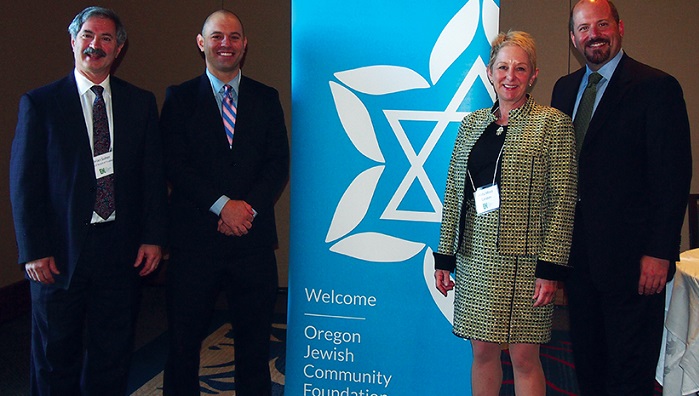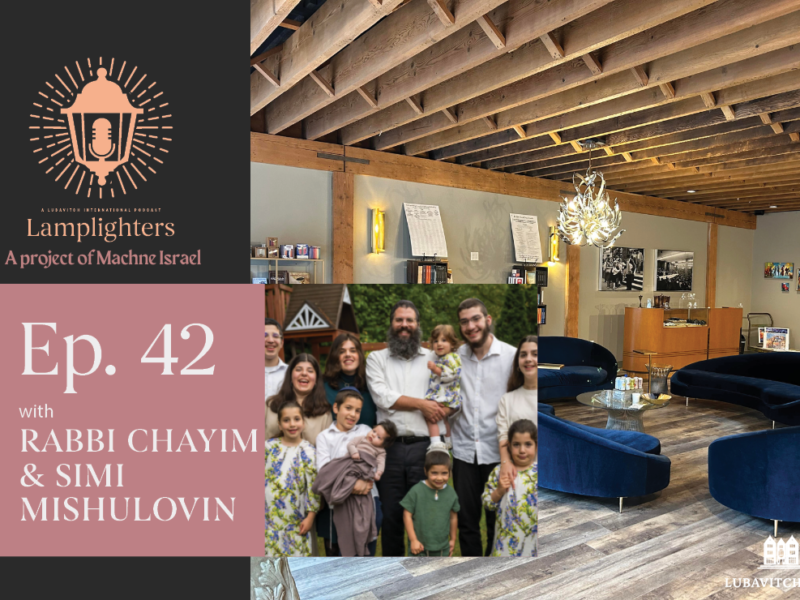
Oregon is not a community property state, so why should residents, lawyers and financial planners care?
The topic drew about 50 professionals who advise clients on estate planning and tax and legal issues to the October luncheon of the Professional Advisors Group of the Oregon Jewish Community Foundation.
The program was presented by attorneys Abby Wool Landon and Daniel L. Stenberg. At Tonkon Torp, LLP, Landon is chair of the estate planning practice group and a partner in the business department and tax practice group. She is a frequent speaker at continued legal education seminars. Steinberg’s practice at Williams Kastner Greene & Markley focuses on advising local, national and international companies on commercial law, with an emphasis on protecting the rights of creditors and fiduciaries.
Simply put, community property is important in Oregon, a common law state, because, Landon told the group, “Once property is defined as community property, it retains its character as community property for tax purposes and for many legal purposes … (including) treatment on divorce or separation, transfer on death, obligations for debts and liabilities.”
That matters because the majority of people moving to Oregon are from community property states. Landon quoted several studies on net migration to Oregon. One notes that the Portland metro area is a popular migration destination for retirees and college-educated young people, with net migration of 66 people per day from 2012 to 2014. The top five states people arrive from are all community property states (California, Washington, Arizona, Texas and Idaho).
“In common law states like Oregon, property titled to one spouse or another is presumptively that person’s separate property,” said Landon. “In a community property state, titling is not determinative of ownership. Understanding this distinction is especially important for those of us working in wealth management in Oregon.”
Steinberg noted the issue is also relevant to debts. “The general rule in Washington, and most community property states, is that debts incurred by either member of a ‘community’ in a community property state are generally considered community debts. … Community debts are only payable from community property.”
At the conclusion of the program, OJCF Executive Director Julie Diamond spoke about why charitable organizations such as the foundation care about this issue.
“OJCF accepts noncash gifts – homes, condos, farms, apartments and a rare gift of air rights over a building in Seattle,” said Julie, urging lawyers and estate planners to “do due diligence before a gift is put in place.”
“We are here to accept good gifts when the title is not messed up,” she said, adding she wants to avoid “Good gifts gone bad … noncash gifts that went sideways.”
Brian Suher, PAG co-chair with Josh Frankel, announced the group’s next meeting will be in February. The program will look at the impact of tax reform, “but if it doesn’t change, we have a backup topic – privacy laws.”
For more information on PAG or OJCF, visit ojcf.org or call 503-248-9328.





